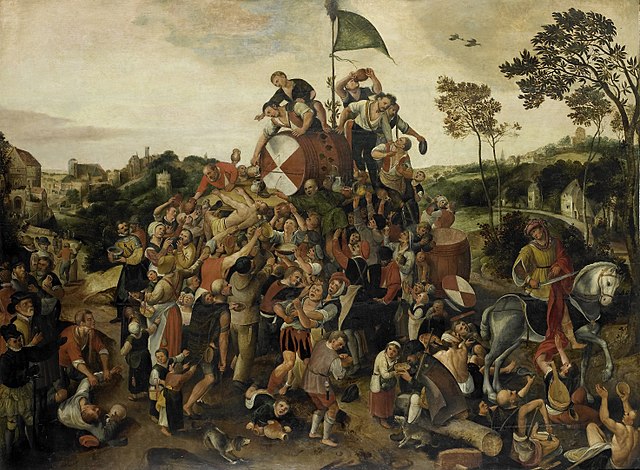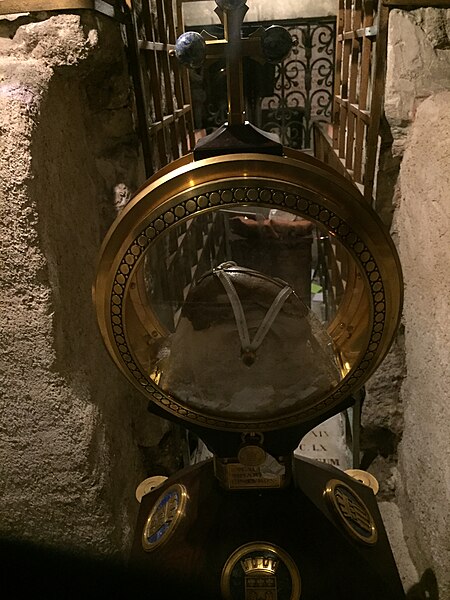Saint Martin's Day or Martinmas, and historically called Old Halloween or Old Hallowmas Eve, is the feast day of Saint Martin of Tours and is celebrated in the liturgical year on 11 November. In the Middle Ages and early modern period, it was an important festival in many parts of Europe, particularly Germanic-speaking regions. In these regions, it marked the end of the harvest season and beginning of winter and the "winter revelling season". Traditions include feasting on 'Martinmas goose' or 'Martinmas beef', drinking the first wine of the season, and mumming. In some German and Dutch-speaking towns, there are processions of children with lanterns (Laternelaufen), sometimes led by a horseman representing St Martin. The saint was also said to bestow gifts on children. In the Rhineland, it is also marked by lighting bonfires.
St Martin's Day Kermis by Peeter Baltens (16th century), shows peasants celebrating by drinking the first wine of the season, and a horseman representing the saint
A tradition on St Martin's Eve or Day is to share a goose for dinner.
St. Martin's procession with children carrying paper lanterns in West Germany in 1949
Procession of Saint Martin in Poznań, 2006
Martin of Tours, also known as Martin the Merciful, was the third bishop of Tours. He has become one of the most familiar and recognizable saints in France, heralded as the patron saint of the Third Republic. He is the patron saint of many communities and organizations across Europe. A native of Pannonia, he converted to Christianity at a young age. He served in the Roman cavalry in Gaul, but left military service at some point prior to 361, when he became a disciple of Hilary of Poitiers, establishing the monastery at Ligugé. He was consecrated as Bishop of Caesarodunum (Tours) in 371. As bishop, he was active in the suppression of the remnants of Gallo-Roman religion, but he opposed the violent persecution of the Priscillianist sect of ascetics.
Martin of Tours
A part of St Martin's skull in the Basilica of Saint Martin, Tours
Saint Martin Dividing his Cloak by van Dyck, c. 1618
Saint Martin and the Beggar by El Greco, c. 1577–1579








